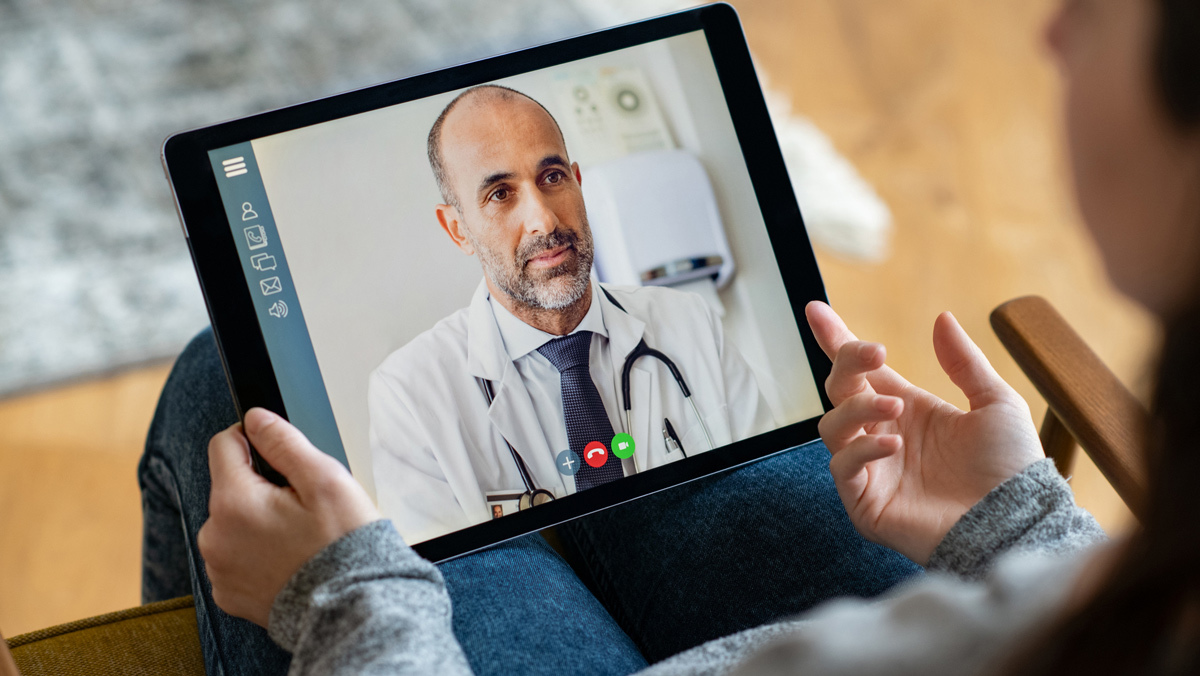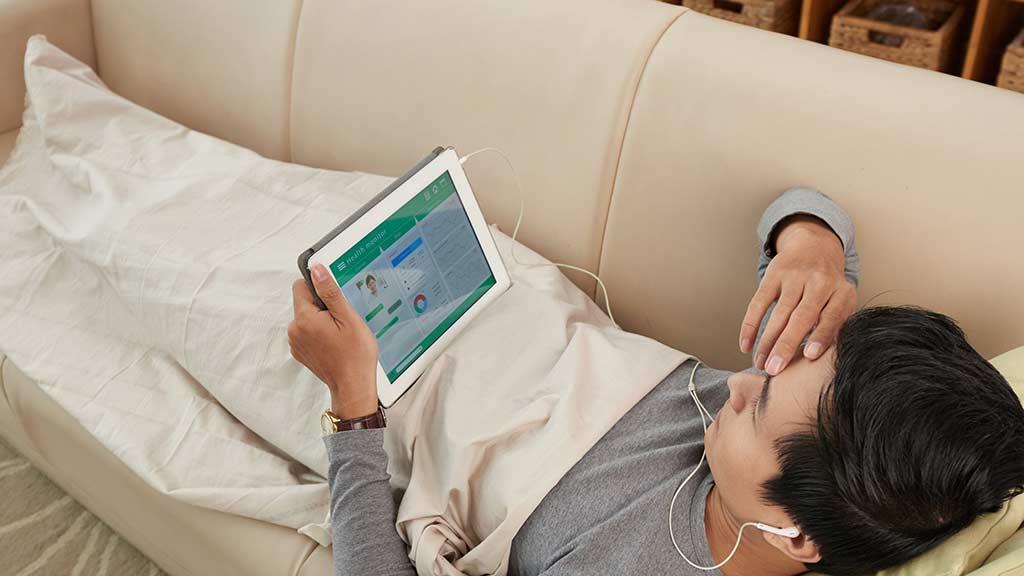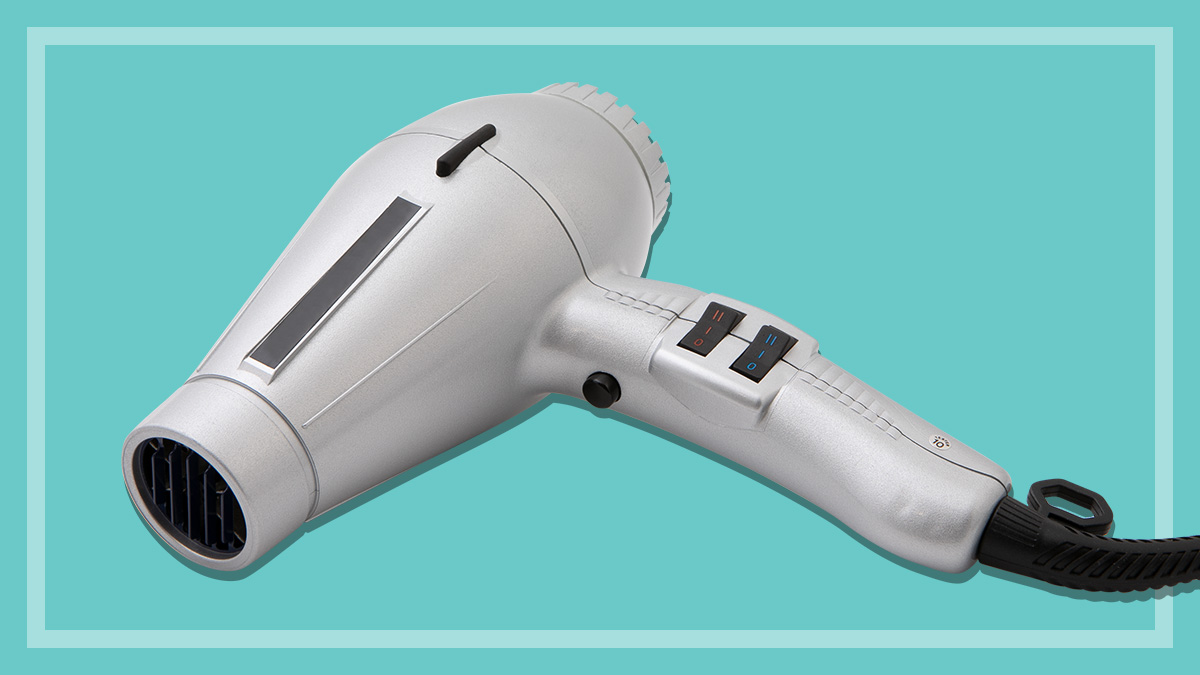Get our independent lab tests, expert reviews and honest advice.
Telehealth and other online e-health services

Telehealth services were once used mainly by those living in remote areas, or occasionally by people who were simply too unwell to face the doctor’s waiting room.
On this page:
- What is telehealth?
- What are the costs?
- Finding online consultation services
- Other online health assistance
- Home visits
- Just need a doctor's certificate?
But since the onset of COVID-19, phone and video consultations have become commonplace for many Australians. So how does telehealth work and what’s the best way to access these services?
Cold, flu and COVID-19: It’s very difficult to distinguish between the symptoms of COVID-19, influenza and a cold. If you have symptoms such as a sore throat, headache, fever, shortness of breath, muscle aches, cough or runny nose, you may need to self-isolate and to be assessed by a medical professional. You should also get tested for COVID-19.
What is telehealth?
‘Telehealth’ or ‘e-health’ refers to a medical consultation that takes place by video conferencing or audio over the internet. Telehealth services can include diagnosis, treatment and preventative healthcare.
Before the COVID-19 pandemic, telehealth services were mainly used by people living in rural or remote areas who needed to access specialists not available in their area. A Medicare rebate was available for eligible patients, but it didn’t extend to the general population, and didn’t cover non-specialist services such as GP visits.
All Australians with a Medicare card can access rebatable telehealth services
But since the onset of the pandemic, the government has increased funding for telehealth, which means all Australians with a Medicare card can access rebatable telehealth services. The government has also extended the number of services covered by Medicare to include videoconference or telephone consultations between patients and GPs, specialists, allied health and nurse practitioners.
All this means that any Australian can choose to have a video or phone consultation with their GP rather than a face-to-face consultation at no extra cost (provided their GP offers this service).
How does it work?
The process for booking a telehealth appointment is more or less the same as for booking an in-person appointment. You call to make the appointment, ask for it to be done over the phone or by video conference (depending on what the clinic offers) and then in most cases the doctor will call you when it’s time for your appointment.
Be aware that your doctor may be running late, as with in-person appointments, so set aside plenty of time.
How widespread is telehealth?
Some telehealth services are provided by online-only clinics. In this case, they will probably process bookings and conduct appointments online, and some may even have their own apps.
But more and more traditional bricks-and-mortar clinics now offer telehealth services, alongside their usual face-to-face appointments. For example, many GPs, health clinics and psychologists now give patients the option of booking phone or video appointments, as well as face-to-face ones.
Telehealth not always suitable
Not all doctor/patient consults lend themselves to a virtual experience, particularly those where an examination or test is needed on the spot.
But one e-health provider we spoke to claims that up to four in every five (80%) GP presentations can be managed online – particularly for common health issues such as coughs and colds, weight loss, sexual health and emotional wellbeing. It’s also possible to ask for specialist referrals, prescription repeats and medical certificates by email or fax after an online (or real-life) consultation.
You must have had a face-to-face consultation in the previous 12 months with the same doctor, or another doctor at the same practice, to be eligible for a Medicare rebate
If you’re booking a telehealth appointment with your GP, you must have had a face-to-face consultation in the previous 12 months with the same doctor, or another doctor at the same practice, to be eligible for a Medicare rebate.
All the e-health websites we looked at state clearly that they aren’t for medical emergencies.
You’ll also need decent internet coverage to be able to use these services. Be sure to check the provider’s policies on refunds when it comes to technology failures and problems with connections.

What are the costs?
All Australians with a Medicare card can now use telehealth services from GPs, psychologists, midwives/obstetricians, specialists, dental practitioners in the practice of oral and maxillofacial surgery, and other covered health professionals – without paying any more out-of-pocket costs than they usually would for a face-to-face appointment.
If you’re usually bulk-billed at your GP clinic, your telehealth appointment with your GP will be bulk-billed too. If you usually pay a gap, you’ll have to pay the same gap for your telehealth appointment.
Claiming on insurance
If you have extras insurance, you may also be able to claim on your telehealth appointment. Many health insurers are now offering increased coverage for telehealth services, letting you claim on a telehealth appointment in the same way you would for a face-to-face visit. Check with your insurance provider to see whether they cover telehealth services and, if so, which ones.
How long will the new telehealth rebates continue?
Medicare-subsidised telehealth services were introduced in direct response to the COVID-19 pandemic. Like many other forms of economic support introduced for the same reason, the new telehealth inclusions on the Medicare Benefits Scheme are described as ‘temporary’.
The Australian government recently announced that, as part of the 2021–22 Budget, it will invest more than $114 million into extending telehealth until the end of the year. But, as yet, there’s no guarantee it will be extended into 2022.
Finding online consultation services
For most people, the best way to access telehealth is simply to ask your GP or other healthcare provider whether they offer it. If they don’t, you may want to use one of the online-only companies that offer consultations to all Australians.
Remember, to be eligible for a Medicare rebate for a telehealth session with a GP you’ll need to have had a face-to-face appointment with the GP (or another GP in that practice) in the past year. This means you won’t get a Medicare rebate for sessions booked through these online-only services.
GP2U
GP2U offers online consultations (they also have an app for iOS and Android) with GPs for diagnosis, specialist referrals, prescriptions and medical certificates. The service also offers prescriptions faxed to the nearest chemist or a delivery service.
Cost: Registration is free and requires a Medicare card, contact number and email address. Consultation prices are set by individual GPs and are based on the length of the appointment. An average consultation lasts 15 minutes and typically costs $50–69.
Health Now
Health Now offers video and phone consultations (it also has an app for iOS and Android) with Australian-based GPs 24/7, as well as psychologists and specialists practising endocrinology, cardiology, psychiatry, paediatrics, neurology, rheumatology, respiratory, haematology, immunology and geriatrics.
The 24/7 doctor service provides medical consultations and advice, medical certificates and prescriptions, if needed. The psychologists provide stress, anxiety and depression management, long- and short-term therapy and counselling, assessments, life coaching and treatments for various mental-health issues. Specialists are available with a referral from your GP.
Cost: These range from $79 for a doctor’s consultation to $180 for a 50-minute session with a psychologist. Specialist prices vary.
Doctors on Demand
Doctors on Demand provides video conferencing 24/7 for medical consultations, prescriptions and medical certificates from a GP, as well as sessions with a psychologist or dietician. An app is available for iOS and Android.
Cost: Doctors’ consultations cost $60 during business hours and $90 out of hours. Psychology sessions start from $168 for 60 mins (these are eligible for a Medicare rebate). Dietician appointments cost $195 for 60 mins during business hours.
Instant Consult
Instant Consult offers a range of GP services including consultations, medical certificates, prescriptions, specialist referrals and more. An app is available for iOS and Android.
Cost: Consultations cost from $35 (less than 10 minutes) to $105 for a longer consultation of more than 40 minutes.
Other online health assistance
If you’re not quite ready for a virtual doctor’s appointment, there are still plenty of apps and websites to help you get ahead before you get into the waiting-room queue.

Symptom checker and service search
The government-supported website Health Direct contains a wealth of information on health topics from pregnancy and ageing right through to general health. It also gives in-depth information on medicines and services.
If you’re feeling off-colour, the site has a symptom checker that virtually triages users according to their symptoms. The program collects basic data such as your age and sex, before asking a series of detailed questions about your symptoms. It will then recommend whether you should see a GP, call an ambulance or go to a hospital.
The site lets you search for GPs, hospitals, dentists, pharmacists, emergency departments, COVID-19 services and allied health practitioners according to the postcode you’ve entered.
Health Direct also has a 24-hour phone service (1800 022 222) staffed by registered nurses who can connect you to an after-hours GP helpline if you need. There’s also a separate phone line for pregnancy, birth and baby advice (1800 882 436).
Cost: Free.
How to find out emergency-room waiting times
Waiting times at the doctor’s surgery or hospital can sometimes stretch to hours. But these handy sites and apps can help you dodge the worst of the waits.
ACT
Health.act.gov.au can give you up-to-date information on the average waiting time over the previous two hours and the number of patients currently waiting in emergency departments.
NSW
Visit emergencywait.health.nsw.gov.au to see the number of patients being assessed by a triage nurse and waiting for treatment for all major hospitals.
NT, Queensland and Tasmania
You’ll be relying on good fortune rather than data to dodge the long wait, as there’s little live information available. But you can check with the relevant health department in that state for more information.
SA
Get updates every 30 minutes on the number of patients in the emergency and inpatient areas at sahealth.sa.gov.au. The site also gives the average waiting time over the previous two hours for the state’s major public hospitals.
Victoria
You can’t access live data but performance.health.vic.gov.au gives you estimated waiting times for major hospitals.
WA
Real-time information is available at health.wa.gov.au for each of the metropolitan hospitals in the state that has an emergency department.
Home visits
The National Home Doctor Service (13SICK)
This service provides urgent after-hours medical care to patients at home in most capital cities. The service offers bulk-billing for all Medicare users and Gold DVA cardholders.
You can book by phone (13 74 25) or using the app (iOS/Android).
How to find a GP near you
Most of us have a preferred GP and, when it’s not an emergency, are happy to wait a few days until they have an available slot. But what if you can’t wait a day or two? Online booking services let you view the available appointments in your chosen area in real time and make a booking ASAP.
Although these sorts of booking services can be convenient, it pays to be wary about sharing your information. In 2018, it emerged that one of these providers, Health Engine, had shared users’ information with personal-injury law firms and other third parties. So it’s best to take care with what you reveal when you book your appointment, and only share what is strictly necessary to make the booking. And, of course, always read the terms and conditions before you agree to them.
Although these sorts of booking services can be convenient, it pays to be wary about sharing your information
Health Engine
The Health Engine website and app (iOS/Android) lets you view in real time the available appointments with participating GPs, dentists, physios and more, then make a booking.
Cost: The service is free, but it does send direct marketing communications including post, telephone calls, SMS or email to customers who register for the service (although you can choose to opt out).
Ozdocsonline
Ozdocsonline lets patients ask participating GPs for online appointment bookings, prescriptions, pathology results, referrals and consultations.
Cost: The service isn’t covered by Medicare, but the site claims the average cost of requests is $20.
DocBook
DocBook is another website that lets patients browse practices, search by location and make an appointment with a GP. The service is available Australia-wide (excluding the Northern Territory), although the choice of participating surgeries is fairly limited.
Cost: Free.
Just need a doctor’s certificate?
You’ve woken up on a workday feeling dreadful and call in sick, but you’ll need a medical certificate. The last thing you feel like doing is leaving your bed in search of a doctor to write you a certificate. Thankfully, there are sites that can help you with that too.
Qoctor
Qoctor will set you up with a video consultation with a GP to discuss the issuing of a medical certificate, prescription or a referral to a specialist. If you need a medical certificate, you can download it immediately after your consultation..
Cost: $22.99 and there’s no Medicare rebate.
Prime Medic
Prime Medic offers video consultations with a GP to discuss the issuing of a medical certificate, prescription or a referral to a specialist. If you need a medical certificate, you can download it immediately after your consultation.
Cost: $19.99. Some doctors are able to bulk-bill patients, but the number of appointments with these doctors may be limited.
Pharmacies
Some pharmacies such as Priceline and various community pharmacies also offer advice and absence-from-work certificates, which may be a cheaper option than using a telehealth service.




